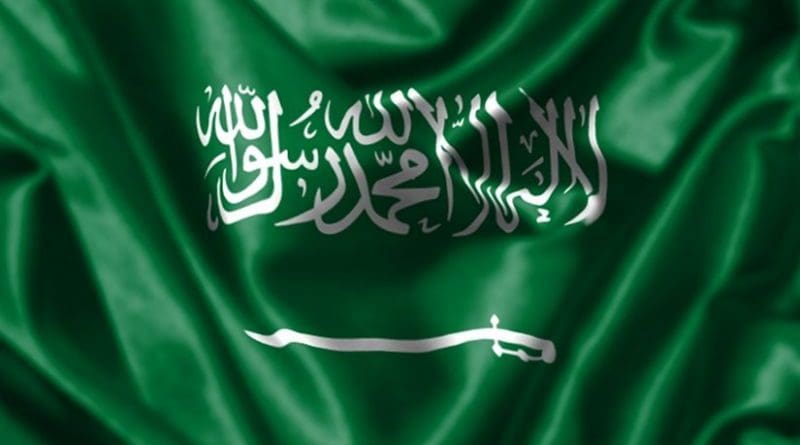Saudi Arabia: Unrelenting Crackdown On Activists, Says HRW
Saudi authorities have arrested two more women’s rights activists in recent days in what appears to be an unrelenting crackdown on the women’s rights movement, Human Rights Watch said. Saudi activists have reported that the authorities have placed travel bans on numerous others since May 15.
On June 6, Saudi authorities arrested the writer and activist Nouf Abdelaziz, who had publicly expressed solidarity with three women’s rights activists arrested in May, along with at least 14 other activists and supporters. On June 10, the authorities arrested Mayaa al-Zahrani, an activist and friend of Abdelaziz, after she reportedly posted a letter Abdelaziz asked her to make public in case of her arrest. In the letter, addressed to her fellow Saudis, Abdelaziz explained who she was, stressing that she committed no crime: “I am not a provoker, not a vandalizer, not a terrorist, a criminal or a traitor… I have never been [anything] but a good citizen who loves her country and wishes for it nothing but the best.” Both women are being held incommunicado.
“The Saudi government appears determined to leave its citizens without any space to show even rhetorical support for activists jailed in this unforgiving crackdown on dissent,” said Sarah Leah Whitson, Middle East director at Human Rights Watch. “Nouf Abdelaziz and Mayaa al-Zahrani’s only ‘crime’ seems to be expressing solidarity with their fellow imprisoned activists.”
On June 4, the local newspaper Okaz reported that nine detained activists, four women and five men, will soon be referred to the Specialized Criminal Court, which was originally established to try detainees held in connection with terrorism offenses, to be tried for committing three “serious” crimes: “cooperating with entities hostile to the kingdom,” “recruiting persons in a sensitive government agency to obtain confidential information to harm the interests of the kingdom,” and “providing financial and moral support to hostile elements abroad.”
Okaz earlier reported that, 15 days into the activists’ detention, an investigating body had announced that all nine detainees had confessed to the latter two accusations. If convicted, they could face up to 20 years in prison.
Among those arrested are the prominent women’s rights activists Loujain al-Hathloul, Eman al-Nafjan, and Aziza al-Yousef; Ibrahim al-Modaimeegh, a lawyer; Mohammad al-Rabea, an activist; and Abdulaziz al-Meshaal, a philanthropist. They face charges similar to those against several imprisoned activists currently serving lengthy prison terms, including Waleed Abu al-Khair, Fadil al-Manasif, and Nadhir al-Majed. Immediately following their arrest, in a coordinated campaign, local media outlets publicly accused those detained of treason.
The recent crackdown on women’s rights activists comes just weeks ahead of the much-anticipated lifting of the driving ban on women on June 24 – an occasion several of the currently detained activists had long campaigned to bring about. Saudi authorities arrested Abdelaziz and al-Zahrani just as Saudi Arabia’s Information Ministry began distributing video footage and photos of women proudly displaying their new drivers’ licenses.
On May 29, the Office of the United Nations High Commissioner for Human Rights (OHCHR) issued a statement calling on Saudi Arabia to immediately release all recently detained activists “if, as it appears, their detention is related solely to their work as human rights defenders and activists on women’s issues.” In a strongly-worded resolution published on May 30, the European Parliament condemned the “ongoing repression of human rights defenders, including women’s rights defenders, in Saudi Arabia” and called on the Saudi government to “put an end to all forms of harassment, including at the judicial level,” against them.
Human Rights Watch has documented Saudi Arabia’s use of its Specialized Criminal Court and counterterrorism law to unjustly prosecute human rights defenders, writers, and peaceful critics.
Following a five-day visit to Saudi Arabia in 2017, the former UN special rapporteur on the promotion and protection of human rights while countering terrorism, Ben Emmerson, concluded in his report published on June 6, 2018, that Saudi Arabia had misused its counter-terrorism measures to stifle political dissent, suppress opposition, and silence peaceful critics. Emmerson provided a detailed overview of the nature of the Specialized Criminal Court, where local media reports say that the currently detained activists will be tried. He included sections on the use of torture and coerced confessions, as well as on pre-trial detentions and flawed investigations.
“It is imperative for Saudi Arabia’s Western allies to speak out in solidarity with the detained activists and to pressure the Saudi authorities to unconditionally release those detained for their work as human rights activists before they are referred for trial,” Whitson said. “There can be no real celebration on June 24 while the women who campaigned for the right to drive and their supporters remain behind bars.”

